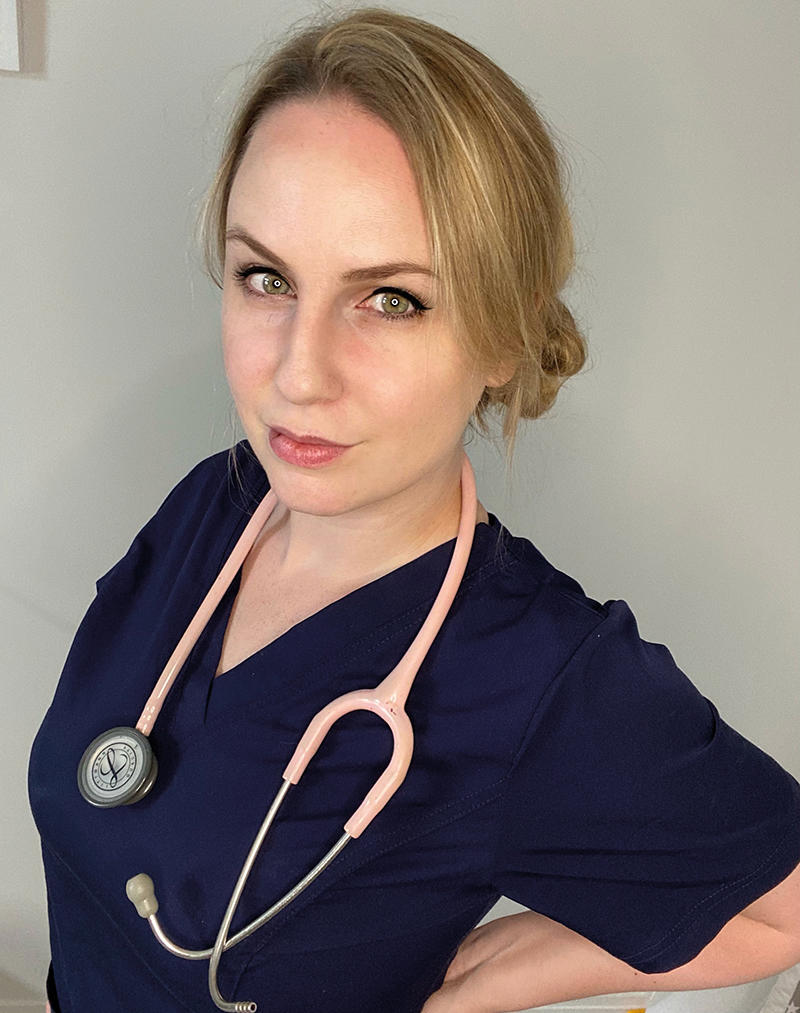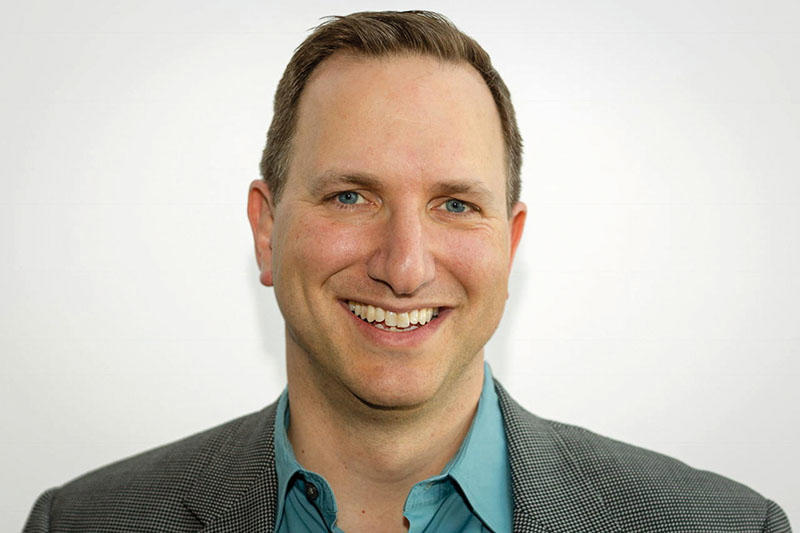‘Contact me again and I will take u to court personally for crimes against humanity you slave Nazi bastards’
‘Go f**k urself with ur poisonous cocktail which is killing people’
‘Why would I come for an untested, experimental, killer vaccination?’
These are just some of the responses GP practices in London have received from patients after simply sending out text reminders about how and where to get COVID vaccinations.
Since the beginning of the vaccine roll-out there have been increasing reports of doctors and other healthcare staff facing harassment and abuse from those sceptical or outright opposed to COVID vaccinations: colloquially known as anti-vaxxers.
I’m not going to let people spread misinformation and cause harmDr Kelly
While this harassment can take many forms including text, email, written letters and even direct confrontation, a considerable portion of it occurs online via social media.
During the pandemic, platforms such as Twitter have afforded medical professionals with an opportunity to engage with a large audience and highlight and promote the importance of getting vaccinated while dispelling misinformation regarding vaccines.
For some, however, the vitriol they’ve received has been shocking and, in some cases, led to them suspending or leaving their social media accounts. Kent specialty trainee 7 in intensive care medicine Samantha Batt-Rawden announced on 8 August she was taking time off from Twitter after receiving dozens of abusive messages relating to COVID.
 BATT-RAWDEN: ‘We are trying to get out correct information on the vaccines and save lives’
BATT-RAWDEN: ‘We are trying to get out correct information on the vaccines and save lives’
In one of her last tweets before suspending her involvement with the site, she shared a recent message she had received where the sender referred to her as a ‘sub-human animal’ and urged her to take her own life.
‘Do we really deserve this?’ she wrote. ‘This is what NHS staff are facing, along with doctors and scientists around the world.
‘We are trying to get out correct information on the vaccines and save lives. Don’t know how much more we can take.’
Bogus legal threats
It is an experience that Manchester-based consultant obstetrician Teresa Kelly can unfortunately relate to all too well.
Speaking about one particular experience, Dr Kelly explains how she had been targeted ahead of an online talk on vaccination in pregnancy she had been scheduled to lead, resulting in the event organisers receiving a number of anonymous threats from the public.
‘The threats warned that people would be “listening” to the event, including medical lawyers, and that if I said that the vaccine was safe, they would look to prosecute me,’ she says.
‘In the end there was no trouble at all, and I think it was just a tactic to try and put us off holding the event. How can you be prosecuted for promoting national guidance? [The threats] made me more determined to go ahead with the meeting because you can’t let these people win. A lot of the abuse is to try and shut you up and I’m not going to let people spread misinformation and cause harm.’
A lot of the abuse is to try and shut you upDr Kelly
Abuse received by Dr Kelly on Twitter has included everything from general profanity and comments about Dr Kelly’s personal appearance, to calls that she be struck off and insinuations that she is being paid by an unspecified individual or organisation to promote a ‘harmful’ vaccine.
After contributing to a local TV news piece on vaccinations in June, Dr Kelly received so much abuse that her trust, out of fear for her safety, urged her to consider temporarily leaving Twitter.
‘There’s been quite a bit of abuse on social media if you promote anything around the vaccines, particularly in relation to pregnancy,’ says Dr Kelly.
‘I was added to a Twitter list of people guilty of cruelty against children. I think I later posted that “Twitter hate’s really strong today”, and one of the responses was “you deserve every bit of it, murderer”.’
She reports every account that sends her abuse to Twitter – an action that she says sees some of them get removed. She says it can be difficult to know how to respond to harassing comments pushing false information. She points out that on the one hand, ignoring it runs the risk of someone else reading and believing it, while challenging it could end up amplifying the responsible individual further.
‘I think that social media companies need to take some responsibility,’ she says. ‘They’re letting people who are promoting national guidance around vaccination be abused repeatedly.’
Tackling harassment
Knowing how to best respond to online harassment is a challenge for many healthcare professionals even if it is coming from one or a few accounts.
In some instances, however, those promoting vaccines have found themselves coming under overwhelming, coordinated attacks, an experience that can take the phenomenon of online harassment to a whole new level.
Pittsburgh-based paediatrician Todd Wolynn and his colleagues found themselves to be the targets of such an attack back in 2017, after Dr Wolynn’s practice posted a short video to YouTube promoting uptake of the HPV vaccine.
Over four days, Dr Wolynn’s place of work, Kids Plus Pediatrics, saw hundreds of negative postings aimed at its Twitter and Facebook accounts in addition to negative reviews about the practice being posted on Yelp and Google.
You can’t let these people winDr Kelly
The harassment finally came to an end when dozens of people from pro-science backgrounds came to the practice’s support online.
The experience inspired Dr Wolynn and his colleagues to found Shots Heard Around the World, a global network of volunteers dedicated to supporting those being bombarded with online harassment from anti-vaccine activists.
 WOLYNN: ‘These comments are intended to run you ragged and deplete your resources’
WOLYNN: ‘These comments are intended to run you ragged and deplete your resources’
‘If they [Shots volunteers] see a vaccine advocate – it doesn’t even have to be a healthcare professional – coming under organised attack from the anti-vaccine community, we will contact that person and, if they request it, come to their aid,’ explains Dr Wolynn.
‘The anti-vaccine community is very coordinated in these attacks, but they only attack in any kind of coordinated large-scale form against [pro-vaccine] messages that are resonating. One of the strategies is to overwhelm you with multiple comments from one or more person. These comments are intended to run you ragged and deplete your resources so that you can’t put good information out there.
‘They’ve [also] been able to weaponise social media by creating reputation harm and that’s a major issue, and they’ve been really empowered by these social media platforms that don’t hold them accountable.’
Stand by your posts
Now operated by the non-profit organisation The Public Good Project with a dedicated staff supported by 1,500 vetted volunteers based around the world, Shots Heard has also developed a toolkit outlining the steps and strategies that can be taken to prepare for or respond to harassment directed at Facebook profiles.
With the internet and social media an excellent way of engaging with people, Dr Wolynn argues that it is important for healthcare professionals to distinguish between those who have genuinely held concerns about vaccination, and those who are simply looking for a fight.
‘If the questions you are getting [about vaccines] are in good faith, even if they are very misguided, then you should engage them,’ he explains.
‘As soon as you realise it’s not in good faith, it’s absolutely imperative that you don’t engage. As quickly as you can, first ban or block them and then delete or hide their comments.’
As soon as you realise it’s not in good faith, it’s absolutely imperative that you don’t engageDr Wolynn
Dr Wolynn adds that one of the most important aspects of dealing with online harassment for medical professionals if willing, is to be prepared and to stand by any posts that may have led to them being attacked, and not delete them.
‘Their goal is to silence you and to get you to pull down your post,’ he says.
‘If you know you’re going to post something that’s likely to receive an attack there are steps you can take on your social media platforms such as stopping reviews and poster comments on the post in question. This can nullify or pre-empt some aspects of these attacks. ‘What we’ve found is that if you follow those steps and stand by your post you can become somewhat immune to future attacks.’
Speaking in a personal capacity, and as someone who themselves has faced abuse online, immediate past chair of the BMA medical academics committee and board of science member David Strain says he condemned the harassment of healthcare professionals in the strongest possible terms.
‘Over the last 18 months researchers and health care workers have worked at unprecedented pace and intensity in order to develop and deliver a vaccine. This vaccine has, quite literally, saved thousands of lives and is allowing life to return to normality.
‘It is appalling that these same people are now being targeted by the very people that they have worked to protect. We, at the BMA, will continue to support any clinical academic, doctor or medical student who has been affected by this, irrespective of whether they are members, through our wellbeing hub.’

